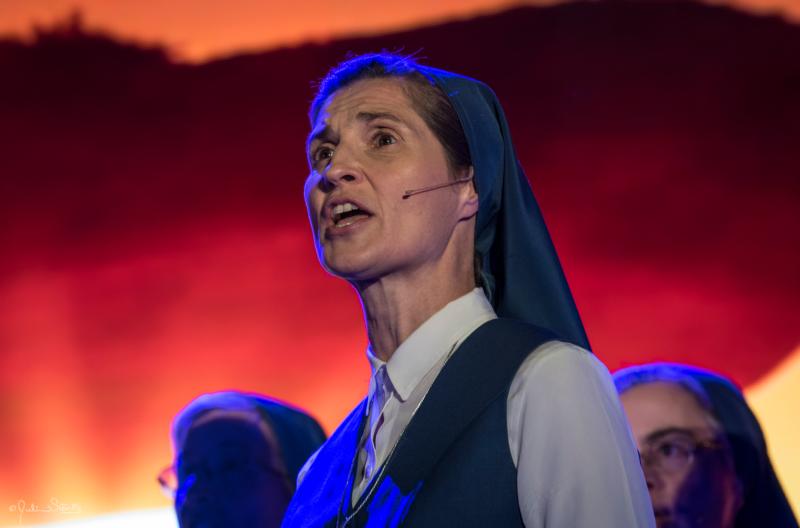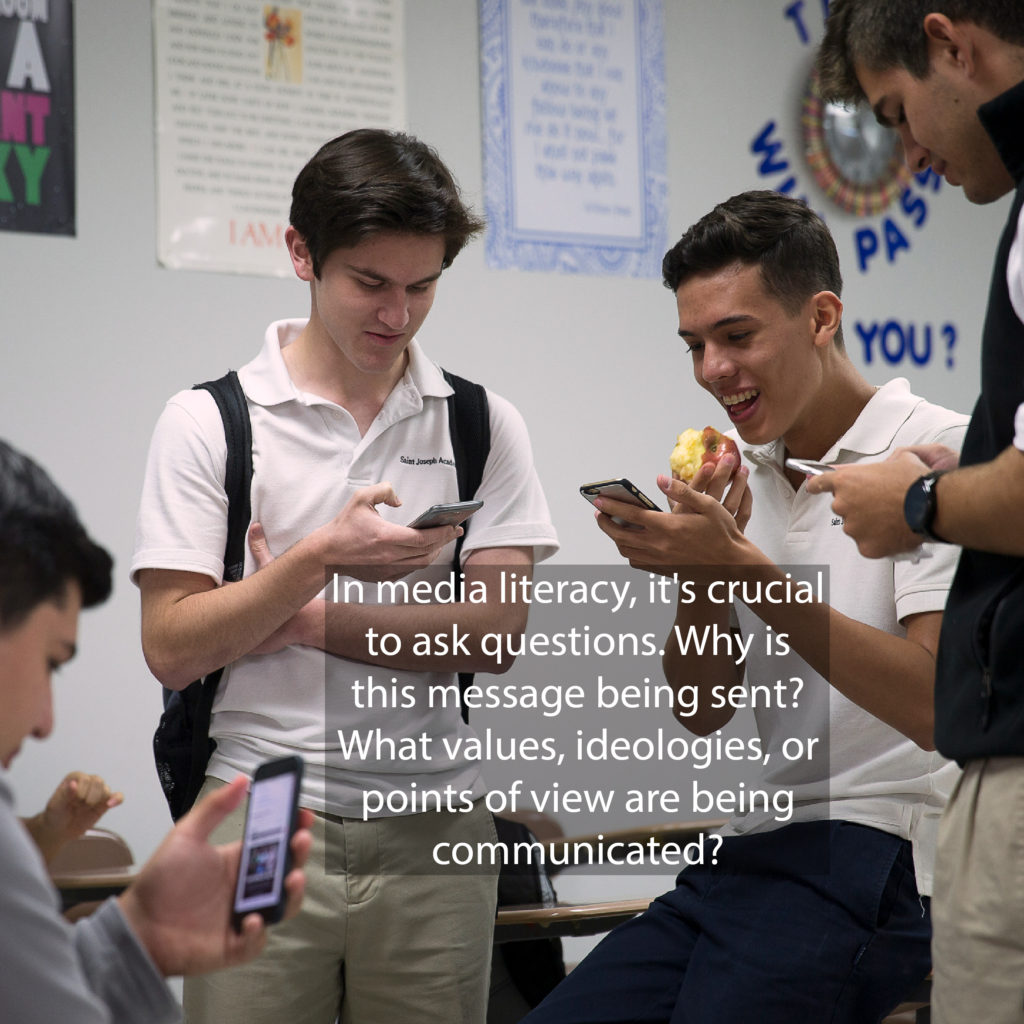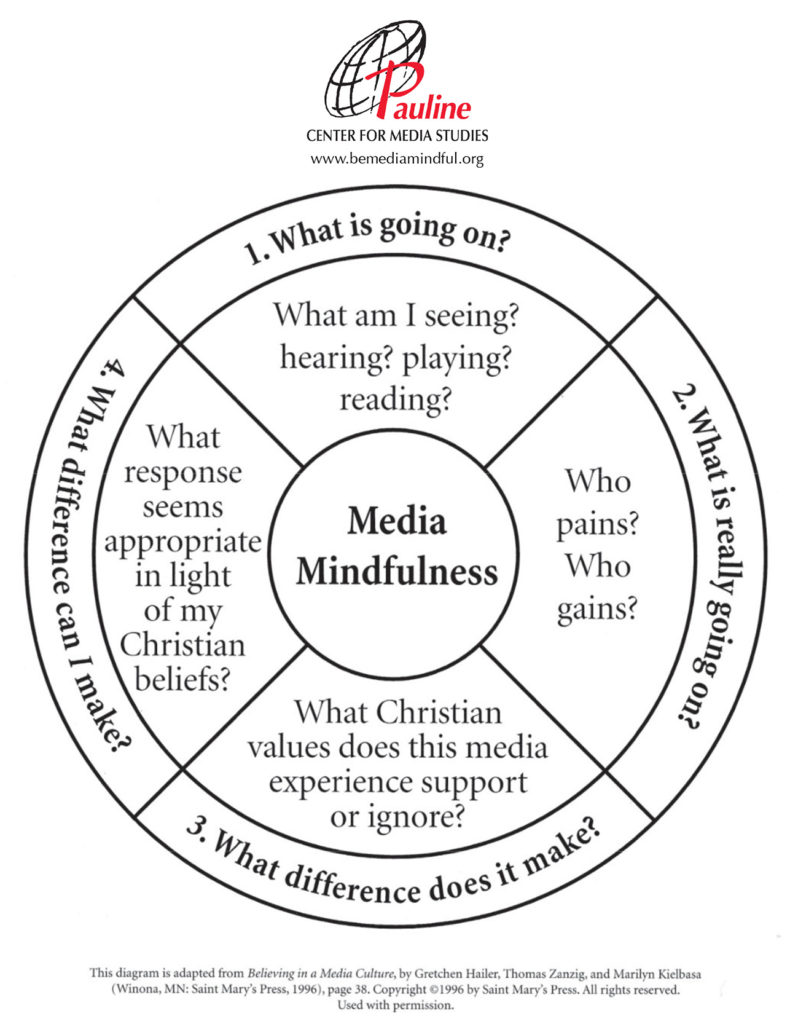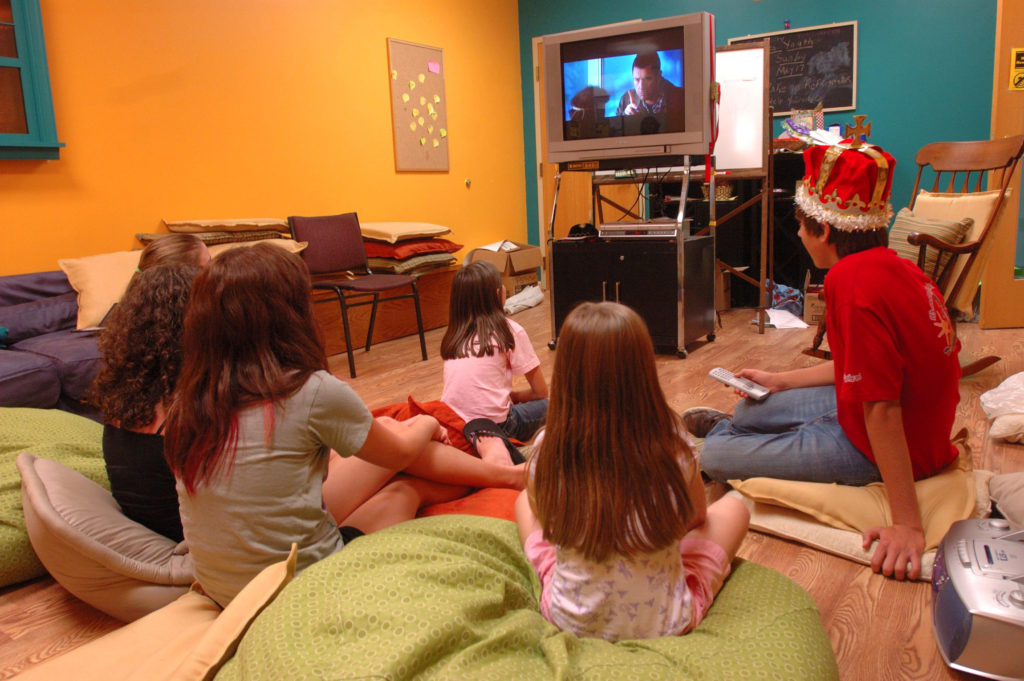
As a media literacy educator, I watch a lot of movies and streaming shows to be able to reflect on theology and the popular culture.

Many times when I meet parents, teachers and ministers they share that their biggest concern is to help youth live mindfully in today’s digital media environment.
How can we integrate a reflective, spiritual life with all the media we consume and create?
I believe this requires us to be critical engagers of the culture. It’s a learned practice that takes discipline, something our culture sorely lacks.
Everything moves so fast that we do not take stock of how we are living and why. The deep existential questions that philosophers of old reflected on have fallen by the wayside and replaced with fast-paced communication that necessitates lack of deep reflection.
So, what is a Catholic to do? Practice media literacy that integrates faith — that is, media mindfulness.
That sounds simple, but it takes effort. What is media literacy anyway?

According to the Center for Media Literacy, it is the ability to “access, analyze, evaluate, create and participate” in the media we encounter. That is, we stop and reflect on all that we see, hear and feel when we engage with media messages.
It is important to know how media are created so we know the techniques involved to grab our attention. However, that is only one part of being media literate.
The crucial part is asking questions: Why is this message being sent? What values, ideologies or points of view are being communicated?
For Catholics, the faith perspective means that we bring Gospel values and the example of Jesus into conversation with those messages. This is media mindfulness.
It follows a four-step methodology of theological reflection (listen, reflect, dialogue, act) helping us to go deeper as we ask critical questions of the media experience.

- We ask first: What is going on? What am I seeing, hearing and feeling?
- Second we question: What is really going on? Who pains? Who gains?
- The third step connects our Christian values: What difference does it make? What Christian values does this media experience support or ignore?
This step helps us question the values the media artifact communicates to examine if that is in accord with what we believe and what the church teaches. It has to do with morality, the good and bad of actions, but also with spiritual values and our existential longings. - Finally we examine: What difference can I make? What response seems appropriate in light of my Christian beliefs?
This is the hardest step to concretize. What do I take away from this media experience? Does it challenge me? Does it reveal some social issue that begs my concern? Does it open me up to different points of view? If so, what action will I take as a result?
Take the movie, “Just Mercy,” as an example. Even though movies are about making money, they are also powerful storytellers that give us a glimpse into a world we may not know about otherwise.
Following the first step of the media mindfulness process, we ask: What is going on?
The film directed by Destin Daniel Cretton presents a narrative based on the true story of Harvard graduate attorney Bryan Stevenson (Michael B. Jordan) who moves to Alabama to give legal representation to death row inmates, many of whom were often wrongfully convicted. He helps Walter McMillian (Jamie Foxx) to clear his conviction and save him from execution.
We ask: What is really going on? The film addresses serious issues with regard to racism and how we judge other people who are different from ourselves. It can lead to a discussion on our legal system that convicts people with less-than-substantial evidence.
The third step is essential: What difference does it make? How would Jesus treat others? This step helps us examine what our faith values really mean in our everyday lives. What does it mean to love our neighbor? Do we really understand this Gospel maxim?
Last, we ask: What difference can I make? My takeaway could be that I will examine my prejudices and seek to respect every person I encounter. I could also look into volunteering with organizations that lobby to end the death penalty.
With each step of the media mindfulness method we begin to reflect more deeply and profoundly on our media entertainment. This can be done for streaming shows as well as social media posts.

All media require of us to be critical thinkers and examine well our relationship to the messages they communicate, as well as what we ourselves create. To live our faith in our daily actions means to grow in discernment skills, living each day reflectively and purposefully.
We are called, as Catholics, to live our faith in the here and now, in the concrete and tangible experiences of our lives, and that includes our digital media experience. When we do, we may be surprised by the grace of God that is reflected back to us from the art of popular culture to challenge us to be holy and engaged digital citizens.






